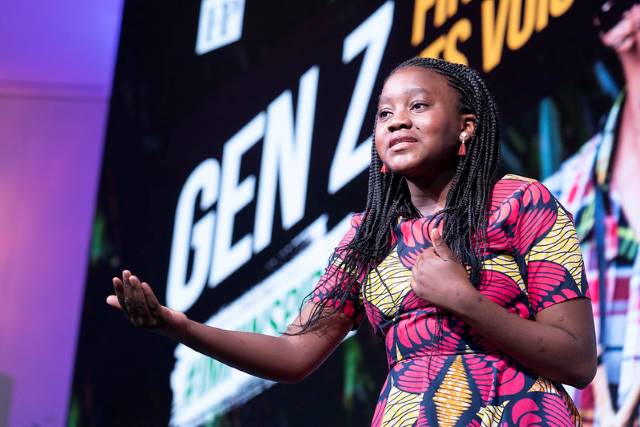How Gen Z Activism is Changing the World
 Generation Z, born between the mid to late 90s and 2010, has proven to be highly outspoken and diverse. Succeeding the millennials, this group is at the front lines of activism advocating for key issues including equality, global health and mental awareness. Listed below are three ways Gen Z activism is changing the world.
Generation Z, born between the mid to late 90s and 2010, has proven to be highly outspoken and diverse. Succeeding the millennials, this group is at the front lines of activism advocating for key issues including equality, global health and mental awareness. Listed below are three ways Gen Z activism is changing the world.
Period Poverty
Periods can be uncomfortable to talk about, but they are a daily occurrence for women all over the world. Furthermore, many women are unable to access period products; homeless and disabled women, in particular, are often unable to obtain menstrual products. This sheds a light on a broader issue: according to UNICEF, 2.3 billion people live without access to basic sanitation services. In developing countries, only 27% of people have adequate hand washing facilities at home. This makes menstruation even more challenging to manage safely.
Period products can be inaccessible for a variety of reasons. For example, “pink tax,” the tax placed on female hygiene products, stands as a significant obstacle to obtaining essential period products. Unfortunately, even with some countries lifting “pink tax” on menstrual products, many period products are still needlessly expensive. According to UNICEF, many Bangladeshi families cannot afford menstrual supplies and use old clothing as alternatives. In India, only 12% of menstruators have access to sanitary products, pushing many to resort to unsafe materials as alternatives, such as rags or sawdust.
The nonprofit youth-powered organization, PERIOD, exemplifies one way Gen Z activism is changing the world. PERIOD has been able to set up chapters in 30 countries, push public schools to provide free menstrual products and expose unfair state taxes. Additionally, PERIOD donates menstrual products to prisons, shelters and schools.
Global Health
Generation Z is going to make up about 20% of the world’s workforce by 2020. The use of technology is more prominent with each coming year; a trend that will likely continue as Generation Z enters the workforce. Technology is here to assist the health care industry. Convenience is the word of the new generation and the theme of the future health care industry. For example, this means more efficient and more accessible diagnoses and treatments. The use of technology gives doctors the ability to classify more illnesses and access more avenues for research.
Health information technology provides a bridge between the developing and the developed world. Health IT makes it possible to diagnose, treat and inform people in rural and impoverished areas. SMS text messages can provide reminders for self-examinations and preventative care; people are able to receive health information via SMS messages as long as they have signal.
Employment
This new generation is also entering the workforce with new expectations. Generation Z activists are calling for a diverse and inclusive work environment. Generation Z is not loyal to any brand or store, more importantly, Gen Z shops for what is affordable and most impactful to communities or countries. Gen Z looks to serve, share and impact others rather than serve themselves. This gives them the power to shape the success or downfall of businesses and drive corporate change.
Gen Z will be the biggest consumer segment worldwide until 2030. Therefore, companies will attract employees by improving their social, environmental and economic standings. H&M, the Swedish fast-fashion house has launched a new website tool that lists details of their products’ suppliers and their factories. McDonald’s has also committed to cage-free eggs and more vegan menu items on its global menus. These simple changes show the efforts of Gen Z in the workforce and the progress that is still to come.
Gen Z is changing the way the world, shops, votes, works and plays. The world is evolving rapidly and Gen Z is ready for all it has to offer. Right at the front lines, Gen Z activism is making progress toward the future.
– Sienna Bahr
Photo: Flickr
